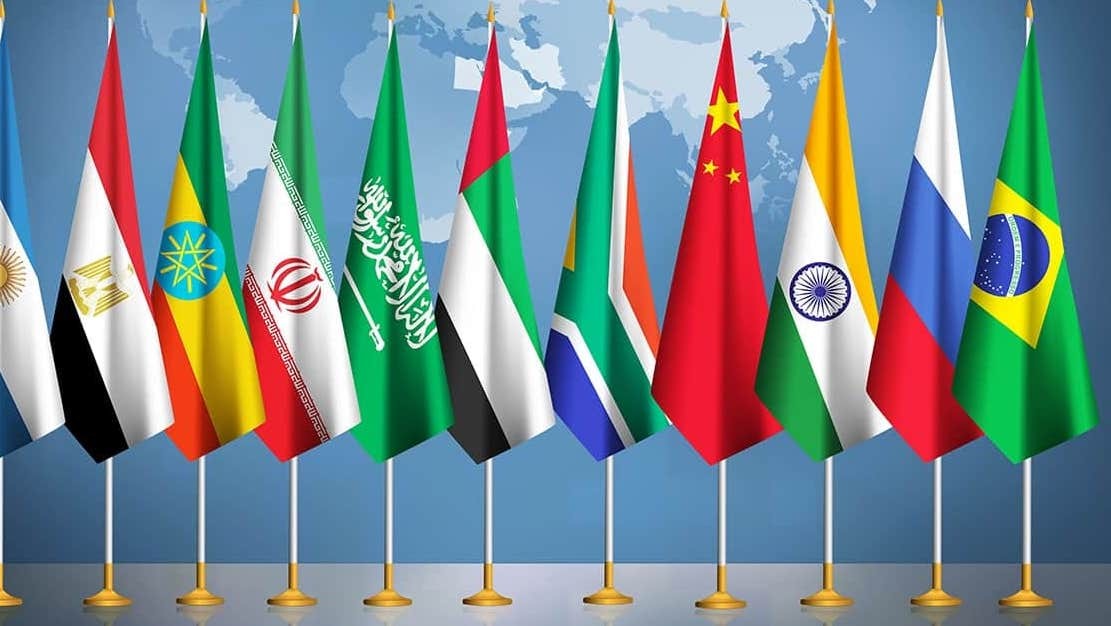On March 6, the BRICS+ competition authorities held a kick-off meeting in a mixed format in Moscow. The meeting was attended by competition authorities of Brazil, Russia, India, China, South Africa, and the competition agencies of the new member states of the association — Egypt, Iran, UAE, and Ethiopia. The event took place within the framework of the association under the auspices of Russian Chairmanship in BRICS in 2024.
During the meeting, Deputy Head of the FAS Russia Andrey Tsyganov told the participants about the formats and mechanisms of interaction between the BRICS competition authorities. There are BRICS Coordination Committee on Antimonopoly Policy and the BRICS Working Groups for the Research of Competition Issues in Socially Important Markets (pharmaceutical, food, digital and automotive markets), as well as the BRICS Working Group on Cartels. The Deputy Head of the FAS noted the importance of the BRICS Centre, which coordinates interaction between the BRICS regulators, including within the framework of the working groups.
"The BRICS Competition Law and Policy Centre is a very important expert and analytical structural unit of the Higher School of Economics in Moscow. The Centre has established a wide network of partnerships with leading universities of the BRICS countries and provides methodological support to antimonopoly authorities when considering cases of cross-border violations of antitrust laws, analyzing global transactions and, in some cases, when regulators develop new, modern antitrust laws and policy regulations,"
emphasized Andrey Tsyganov.
The BRICS Competition Centre is an advanced form of partnership between academic and governmental structures, emphasized Alexey Ivanov, Director of the Centre. Over the years, the Centre's experts have prepared large-scale reports: on concentration in the global seed market, problems of digital markets, global food value chains in the context of competition law, etc. In November 2021, at the BRICS Competition Conference in China, the Centre presented a project on "ecoantitrust" — an ecological method of regulating digital ecosystems, which is being developed together with the Vienna-based International Institute for Applied Systems Analysis (IIASA).
The new method allows us to address the flexible nature of digital platforms. In the "ecoantitrust" logic, antitrust regulators are "gardeners" who work with ecosystems as living nature and correct its development. According to Ivanov, regulators of the BRICS member countries are already using this approach partially.
During the COVID-19 pandemic, the Centre focused on the BRICS Working Group for the Research of Competition Issues in Pharmaceutical Markets and assisted in promoting South Africa and India's initiative to suspend IP on COVID-19 vaccines. Currently, as part of the Working Group, the Centre's experts are providing analytical support in finding ways to improve access to biological medicines and biosimilars in the BRICS countries.
"Our challenge is to provide academic expertise to the competition authorities and to create demand in the global marketplace of ideas for research focused on the interests of BRICS and other developing countries. Unfortunately, very few academic institutions, even those with a presence in the BRICS countries, pay attention to issues of importance to the developing world,"
Alexey Ivanov emphasized.
During the event, the co-chairs of the Working Groups told the new members about the goals and objectives of the work and shared the results of their researches and implemented projects.
Andrey Tsyganov, as co-chairman of the BRICS Working Group on Food, informed colleagues about the beginning of a study on competition issues in the agricultural market.
Bruna Pamplona de Queiroz, Head of the International Unit of the Administrative Council for Economic Defense (CADE), highlighted the activities of the BRICS Working Group for the Research of Competition Issues in Digital Markets. Last year, CADE presented an updated version of the BRICS Digital Markets Report.
"The report analyzes new complex issues related to the sector, such as multi-sideness, the existence of zero price markets, and the power derived from controlling enormous volumes of data. Also, some uncompetitive conducts are explored, possible remedies in digital markets and highlights the challenges in monitoring the implementation of a remedy,”
said a representative of the Brazilian Competition Authority.
Ashutosh Kumar, Joint Director, CCI, in turn, spoke about the study of competition issues in the automotive markets conducted in 2021, as well as about the new direction of work of the BRICS competition authorities – analysis of competition in the renewable energy sector. The sector has great potential for the development of innovations, and intellectual property rights, the speaker noted.
"This is fraught with risks of creating monopolies or oligopolies. Global experience also shows that there may be problems with market concentration, dominance in the energy supply chain, high barriers to entry and the formation of strategic alliances and JVs between companies."
The representative of the Competition Authority of China noted the activities of the BRICS Working Group on Pharmaceuticals. Since the establishment of the Working Group, the competition authorities of the countries of the association have exchanged experiences, shared practices and strengthened consensus on important issues of mutual interest such as compulsory licensing and increasing the supply of COVID-19 medicines to countries in need.
"We invited experts and enterprises to share their views. All these events played an important role in maintaining fair competition in the BRICS pharmaceutical markets and ensuring people's life, health and safety."
The competition authorities of the new member states were invited to actively participate in the activities of the Working Groups. In addition, colleagues were advised to think about socially significant sectors that could form the basis of a new working group.
At the end of the meeting, representatives of the regulators of Egypt and the United Arab Emirates noted their high interest in developing cooperation in the BRICS format. Representatives of the new member countries stressed their willingness to expand and strengthen cooperation within the framework of the association in order to bring practices closer and improve the effectiveness of antimonopoly regulation.




